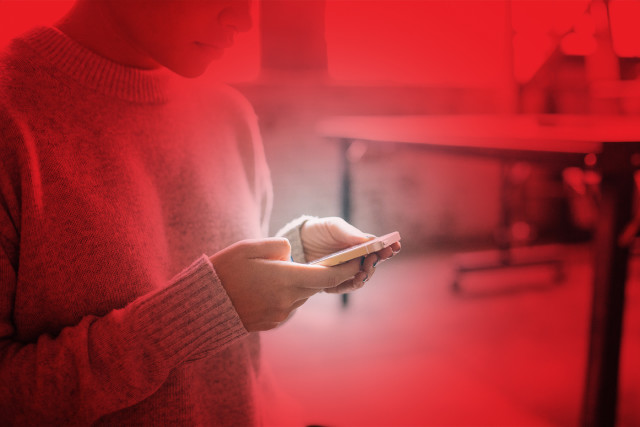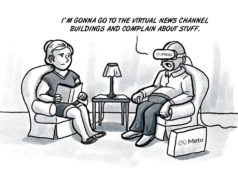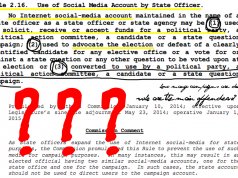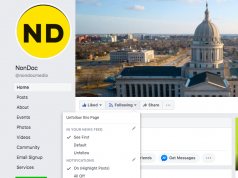
I woke up this morning to something different. There was no blue glow. There was no delay in getting out of bed to scroll through feeds and updates, and there was no stress over what was happening elsewhere at that moment.
I felt like something was missing, yet I didn’t miss it. I played with my dog. I watched a cartoon with my son. I watched his face when he laughed, and I did silly impressions of what we both saw and heard — together.
It was more joy in minutes than I’ve had in a long time, because there was something different. I was present, and my phone was not.
This disconnection from my phone is a new commitment for me, as I challenge myself to spend less time on social media and the Internet. It’s a personal decision to try to live more for what’s actually in front of me, to discover what’s real and really important, both in emotions and experiences. I want to see if being overly connected has actually caused a disconnect in my life.
So why the sudden need — in a time where smartphone technology and social media platforms are ever-changing, exciting and impressive — to take a step back? Recently, I had a wake-up call about the “satisfaction” my phone social media were bringing to my daily life.
It was a bad day. I was crying, and my 5-year-old brought me my phone. “Here, this will make you feel better,” he said. Not a hug, not a kiss, but a phone that he’d seen me look into and smile at so many times. My stomach turned. Why did he think my phone was what would make me happy?
I decided to take this very seriously and dive into the reasons why I hadn’t noticed the effects of social media on my emotions. I have always been the one to complain when someone flipped through Facebook at dinner, disengaged from conversation to read something online or live tweeted, well, anything. I’m embarrassed to say my soap box was pretty tall. Yet, in the midst of this, I’d begun posting more of my own life and missing more of what was actually happening. And I’m far from alone in this problem.
According to the Pew Research Center’s report “U.S. Smartphone Use in 2015,” 64 percent of Americans own a smartphone, 46 percent say it’s something they “couldn’t live without,” and 75 percent of all owners used social networking at least once in the one-week period they were surveyed. The study further explored why people were so glued to their phones, finding:
“93% of 18-29 year old smartphone owners in the experience sampling study used their phone at least once to avoid being bored … 47% of young smartphone owners used their phone to avoid interacting with the people around them at least once during the study period …”
Can’t live without it? Avoiding interaction? Doesn’t sound very good. But, it wasn’t all negative. The study also reported:
“When it comes to the emotions that people experience as a result of having a smartphone, ‘productive’ and ‘happy’ lead the way — 79% and 77% of smartphone owners, respectively, indicated that their phone made them feel this way at least once over the course of the study period.”
Obviously, a great deal of the respondents didn’t feel their interaction was bad, and there are many that likely will agree. In fact, WeAreSocial.net reports that about 1.7 billion people have active social media accounts, and “the average social media user spends 2 hours and 25 minutes per day using social networks and microblogs.” The majority are on Facebook, with 1.37 billion active users reported in January 2015. Sharing our lives, communicating with friends and family you otherwise see infrequently, and connecting more easily are all great benefits — so what’s my problem?
For me, my Facebook use resulted in stress and anxiety. Sharing my personal moments of joy gave me a fleeting, false satisfaction. I found myself comparing lives, becoming jealous of others, obsessing over the problems posted by friends, and even worse, needing confirmation in “likes” to validate that what I shared was worthwhile. My life and moments were cheapened down to a “post.” The spiral from proud to narcissistic is easy to see in others, but not so easy to see in ourselves — sharing workouts, vacations, family photos, check-ins and a barrage of selfies. Lest we not mention the car selfie: seatbelt on, behind the wheel and going places — see how good I look?
I, myself, am totally guilty of the gym selfie. Sad, but true. I just worked out — did you see how hard I worked out? Are you as excited as I am? I’d like to think my intentions are good, but if I have to be truly honest with myself, it’s a little pathetic. I don’t need to share my sweaty pics to be personally proud of myself. (On a side note, I’m considering logging in to Twitter right now to erase all of the evidence.)
Upon researching more about anxiety accompanying social media, I received less of the false satisfaction about which I originally set out to learn and much more associated stress — the stress from the constant knowledge of others’ complaints and problems. I found a lot of insight in another Pew Research Center study, “Social Media and the Cost of Caring.” It surmised,
“While the little sips of information sent through social media may not seem like much, they can add up to a big gulp. This study suggests that the information transferred through social media translates into awareness of all kinds of extra things, including an awareness of undesirable events in the lives of family, friends and acquaintances.”
And although the link between anxiety and social media is indirect, it does appear that caring about the happenings of our Facebook friends can add a lot of extra weight. For me, that snuck in. Over time, I noticed myself spending a lot of time worrying about an extra 300 people, and it took a toll.
I found a similar story in an article titled “How Social Media Affects Our Self-Perception.” In it, author Kelsey Sunstrum explores “smiling depression,” describing how a friend deleted Instagram because it was depressing her.
“The pressure of taking the right picture, with the right filter, wearing the right outfit, at the right place, with the right people was too much pressure,” Sunstrom said. “We are conditioned to project only our best, albeit unrealistic, selves on our social media profiles as a modern way of virtually keeping up with the Joneses.”
Sunstrom also describes how much energy people spend crafting the perfect digital identity and how it can be associated with smiling depression.
Smiling depression can be used to describe people who don’t necessarily look unhappy, but are hiding depression. Sunstrom observed, “Social media puts an interesting lens on the creation of the self, and how this construction affects our mental well-being.”
With the pressure for a digital image and the expectations to participate on social media, we can easily go from self-aware to anguishing in our own thoughts.
I’m not saying that you must delete your social media accounts, buy a flip phone and suddenly relish in your new enlightenment. I am hoping that you’ll gain a renewed self-awareness by looking at your level of online interaction and deciding if it’s healthy. For me, I needed to change my habits after becoming conscious that Facebook was having a negative impact on my life. That doesn’t mean I’ve sworn off social media, but it does mean that I have learned some limitations I should set for myself.
It has now been three weeks since I deleted my Facebook account, and, on the way to school, my son said, “Mom, you forgot your phone.” I told him that I didn’t bring it because what he had to say was more important than anything on that screen. He smiled. I smiled. We are already better off.
And you know what? Tonight, I have something really fun planned with my family. I am going to take lots of pictures. I am going to make tons of memories. And you are not going to see any of it.
Status update: feeling … free.





















